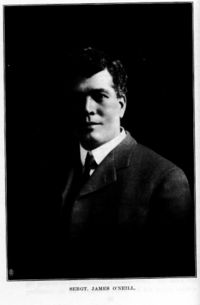Annotation:Girls of Banbridge (The)
X:1 T:Girls of Banbridge, The M:6/8 L:1/8 R:Jig K:D B|AFA dcB|BAG FED|FAD FED|CDE EFG| AFA dcB|BAG FED|(f<a)f gec|ded d2:| |:B|AFA dfa|agf efg|(f<a)g fed|cde e2A| AFA dfa|agf efg|(f<a)f gec|ded d2:|
GIRLS OF BAINBRIDGE/BANBRIDGE, THE (Cailinide/Cailini Ua Droiciod-Na-Banna). AKA and see "Galbally Jig (The)," "Gwynt y Glan," "Plymouth Lasses," "Reel du berger," "Reel des paroissiens," "Sylph (The)." Irish, Double Jig (6/8 time). D Major. Standard tuning (fiddle). AABB. In Wales the tune is known as "Gwynt y Glan" (The White Wave). Banbridge is located in County Down about 15 miles south of Belfast. It is a market town on the upper Bann river and a gateway to the Mourne Mountains. Banbridge was once an important stop on the Dublin to Belfast stagecoach route, which led to an important feature of the town. A hill to the south of the Bann presented such a problem to the horsedrawn Royal Mail coaches that Banbridge was threatened with a bypass in favor of another route, a pending disaster for trade. In 1834 enterprising townspeople dug an underpass in the center of the wide main street, lowering the hill and splitting the street. At the same time, an overpass was constructed to allow traffic to move cross-wise. The underpass is still called 'The Cut', while the bridge above, named the Downshire Bridge, is known locally as The Jinglers Bridge. A statue has been erected in the town square to Captain Francis Crozier, a native son who died in the search for a North-West Passage.
The tune was recorded in the 78 RPM era by Sligo fiddler Paddy Killoran and His Pride of Erin Orchestra, and also by fiddler Michael Coleman on a recording for a private collector in 1940 (as "Girls of Bainbridge"). See also versions of the jig by Montreal fiddler Joseph Allard (1873-1947) released as "Reel du berger" (1929) and "Reel des paroissiens" (1936).

